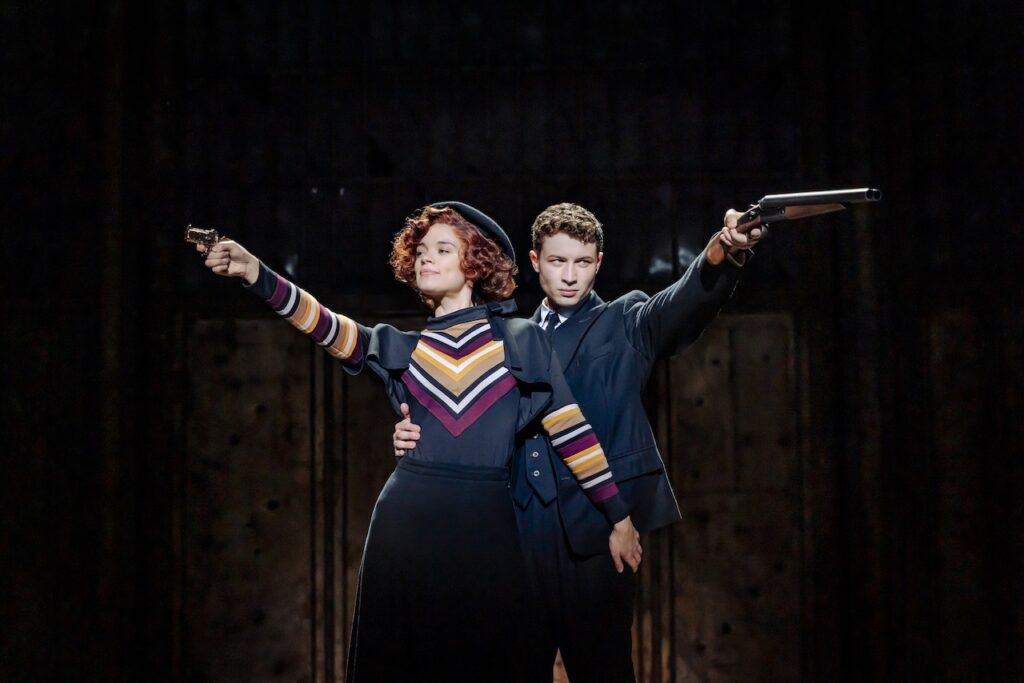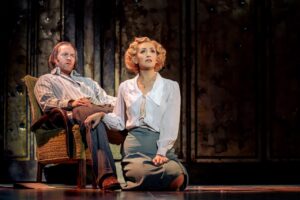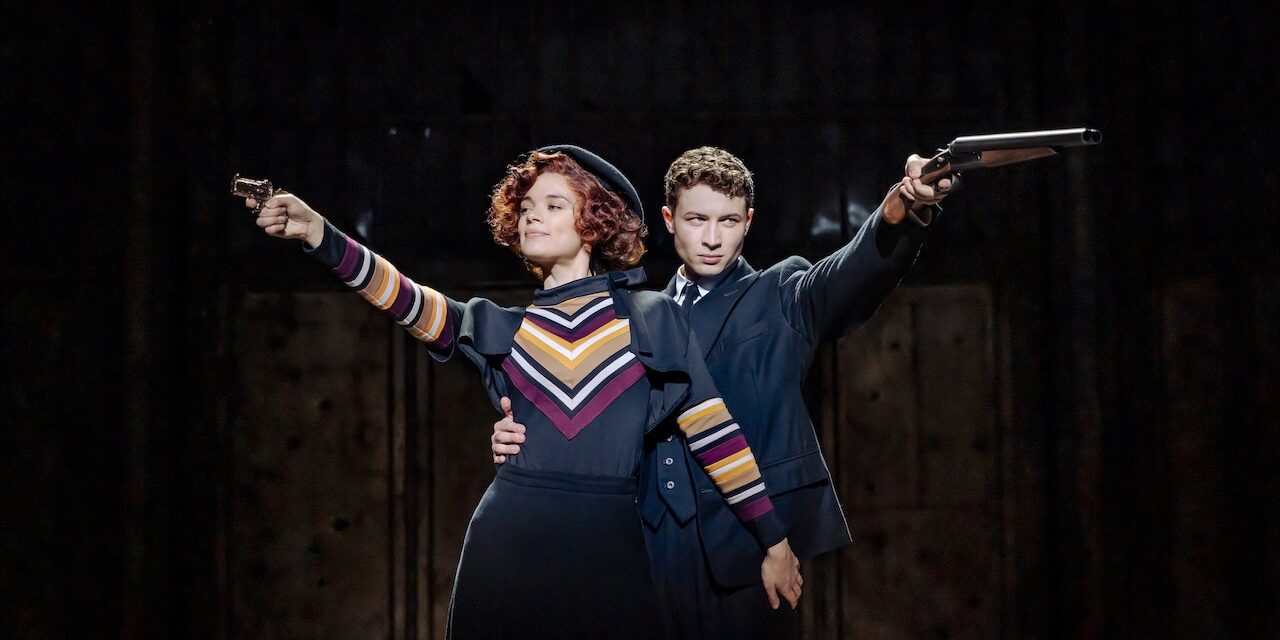
30 April – 4 May
This show starts with a bang – followed immediately by many more, for we begin at the very end of the story, with Bonnie And Clyde lying dead in their bullet-riddled car. Everything that follows is overshadowed by the knowledge that matters are going to come to a very violent end. What follows is a musical blessed with some real strengths, but hampered somewhat by its generally soft-focused and overly romantic account of what is, in essence, a grim and bloody tale.
Bonnie And Clyde has a strong cast. Katie Tonkinson portrays a vivacious Bonnie Parker, never abandoning dreams of Hollywood stardom and becoming another Clara Bow. Equally beguiling is Alex James-Hatton’s depiction of Clyde Barrow, though his dream idols are the likes of Billy The Kid and Al Capone. Clyde is surely a damaged young man, brutalised by his experience of a harsh and corrupt prison system, but here he is generally all charm. Seeing a little more of that damage and his consequent capacity for hatred and cold-blooded violence would make his character more substantial. Here, he and Bonnie are both seen as very likeable, and their physical attraction for each other is convincingly portrayed, but in dramatic terms their relationship is a little lacking in depth.
A more fascinating and nuanced relationship is that between Clyde’s brother Buck and his fervently religious wife Blanche. Here are two characters whose journey towards eventual doom is far from straightforward. Having already had a spell in prison, Buck (Sam Ferriday) strives hard to be good, but loyalty to his brother eventually proves stronger than Blanche’s desperate plea for him to stay on the straight and narrow.

Catherine Tyldesley is outstanding as Blanche, vividly depicting a God-fearing woman whose righteousness does little to protect her from evil. In an early scene set in a hairdressing salon Tyldesley’s considerable skills as a comedienne are very much to the fore, but later she becomes the one truly tragic figure in this story, and her song Now That’s What You Call A Dream is a dramatic highlight.
Bonnie And Clyde makes much use of back projection, frequently featuring photographs of the era and events depicted in the show. That use of documentary material sits uneasily alongside moments on stage when the intention seems to be to depict Bonnie and Clyde as romantic, gun-totin’ heroes. At other times the mood is much grittier, but over all there is a lack of clarity, both of mood and message. Don Black’s lyrics are often witty, and Frank Wildhorn’s music, though not especially memorable, is tuneful throughout. However stylistically it hops about from genre to genre, even, in Raise A Little Hell, venturing into anachronistic hard rock territory.
Having noisily given the game away in its opening moments, the show ends not with a bang but with Bonnie and Clyde sat in their car awaiting their fate, reflecting that Dyin’ Ain’t So Bad. That cheerful thought brings to a close a musical that, while having many strong features, never manages to square a circle of its own making. To endow a pair of cold-blooded killers with the status of romantic heroes proves to be a task that this rather soft-hearted Bonnie And Clyde never quite achieves.
★★★☆☆ Mike Whitton, 1 May 2024
Photo credit: Richard Davenport


